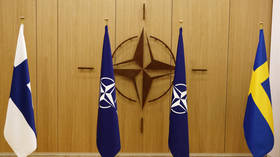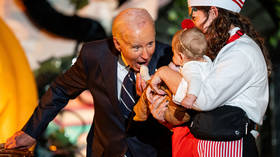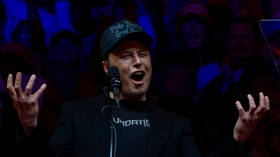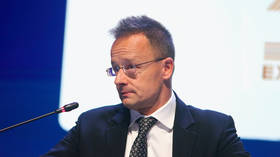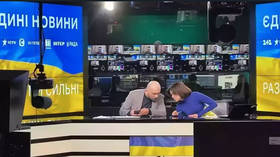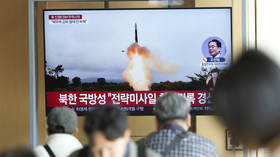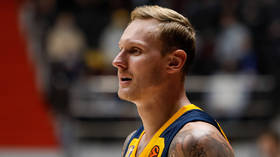Turkey explains why it hasn't placed sanctions on Russia
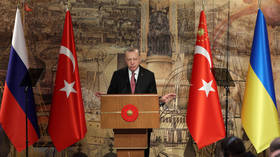
Turkey does not follow the Western lead in sanctioning Russia because it is guided by pragmatic economic considerations and “a policy of balance,” the Turkish president’s spokesman Ibrahim Kalin has said.
In an interview with Haberturk TV, Kalin said that Ankara is pursuing “a policy of balance” when it comes to its relations with Russia.
“As we are dependent on foreign sources for energy, we develop relations with Russia as we do with Iran,” he explained, noting that Turkey also enjoys good relations with the US and other Western countries.
“We do not impose sanctions on Russia over the Ukraine war. Of course, we have to protect the interests of our country,” he said.
In Kalin’s opinion, imposing sanctions on Moscow “will harm Turkey's economy more than Russia’s.”
“We took a clear stand. At present, the Westerners have also accepted it. They do not say anything about Turkey's position for geopolitical reasons,” Kalin claimed.
He also emphasized that his country does not support the policy of imposing personal sanctions against Russian businessmen.
“Those who are called billionaires in the West are called oligarchs when it comes to Russia. Are there no such leaders in the US or Europe?” Kalin asked.
Kalin made it clear that his country views Russia's military operation as an “invasion” and states it “clearly and unequivocally.” However, he stressed that Turkey continues to talk to both Ukraine and Russia as “the longer the war, the higher the cost.”
“Frankly, there is no other country that makes an effort to bring the two sides together. It will set an example that cooperation can be made on certain issues even in a war environment,” Kalin claimed.
He emphasized the role Ankara was playing in negotiating solutions to certain globally important issues, such as grain supplies from the conflict-torn region.
“Who will eventually talk to Russia if everyone burns the bridges?” he asked.
Kalin admitted that he cannot predict at which point Russian military forces will leave Ukraine but stressed that “war has short-term, medium and long-term effects.”
“My prediction is that we will be busy with the war and its effects for the next 10 years. The war may end, but its effects will continue in a different way,” Kalin said.
In his opinion, the world is facing a new kind of cold war, with strong anti-Russian sentiment in the West and “anti-Westernism” spreading in Russia.
“There will be massive tectonic repositions,” Kalin claimed.
Commenting on the reasons behind the Russian offensive in Ukraine, the spokesman refuted Western claims about Russian President Vladimir Putin’s ‘irrationality,’ saying that sometimes the West prefers to “irrationalize the issue instead of confronting it.”
In his opinion, the problems in relations between Russia and the West started in the 1990s when Russia, in response to a changing global geopolitical order, offered the West the chance to make “a new balance agreement” that would reflect those changes.
“Those who wanted to suppress the countries wishing to get out from below said: let’s go the way of conflict,” he explained.
Stressing that “this never justifies the Russian invasion of Ukraine,” Kalin pointed to the importance of not ignoring the cause-and-effect relationship.
“We also object to this irregular order and this unfair [global] order,” he added.
Russia attacked Ukraine in late February, following the neighboring state’s failure to implement the terms of the Minsk agreements, first signed in 2014, and Moscow’s eventual recognition of the Donbass republics of Donetsk and Lugansk. The German- and French-brokered protocols were designed to give the breakaway regions special status within the Ukrainian state.
The Kremlin has since demanded that Ukraine officially declare itself a neutral country that will never join the US-led NATO military bloc. Kiev insists the Russian offensive was completely unprovoked and has denied claims it was planning to retake the two republics by force.

